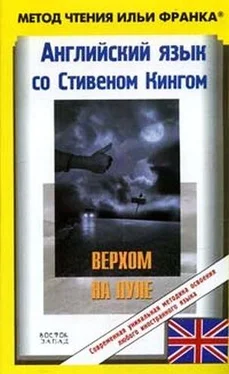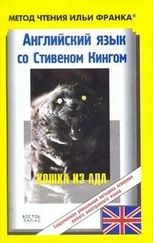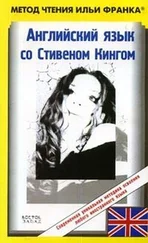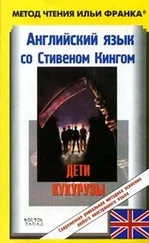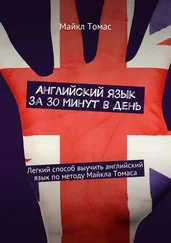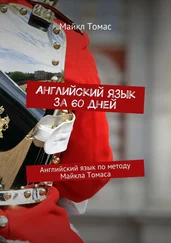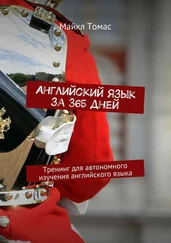wheelbarrow ['wJl"bxrqV], light [laIt], ancient ['eInS(q)nt]
“I'll make sure the key's under the red wheelbarrow,” she said. “You know where I mean, don't you?”
“Sure.” My mother kept an old red wheelbarrow by the door to the back shed; in the summer it foamed with flowers. Thinking of it for some reason brought Mrs. McCurdy's news home to me as a true fact: my mother was in the hospital, the little house in Harlow where I'd grown up was going to be dark tonight — there was no one there to turn on the lights after the sun went down. Mrs. McCurdy could say she was young, but when you're just twenty-one yourself, forty-eight seems ancient.
“Be careful, Alan (будь осторожен, Алан). Don't speed (не гони; speed — скорость; to speed — двигаться поспешно, мчаться; превышать максимально допустимую скорость ).”
My speed, of course, would be up to whoever I hooked a ride with (моя скорость, конечно, будет зависеть от того, с кем я поеду; to be up to… — зависеть от…; hook — крюк; to hook — подцепить; поймать; заполучить; to hook a ride with smb. — подъехать на попутной машине c кем-либо ), and I personally hoped that whoever it was would go like hell (и лично я надеялся, что, кто бы это ни был, он будет лететь как сумасшедший; like hell — изо всех сил, стремительно ). As far as I was concerned (что касалось меня), I couldn't get to Central Maine Medical Center fast enough (то любая скорость была бы для меня недостаточно велика: «я не мог добраться до Центрального медицинского центра /штата/ Мэн достаточно быстро /для меня/»). Still, there was no sense worrying Mrs. McCurdy (однако не было смысла беспокоить миссис МакКурди).
“I won't (я не буду). Thanks (спасибо).”
“Welcome (не за что),” she said. “Your ma's going to be just fine (с твоей мамой все будет в порядке; fine — отлично, прекрасно; то, что надо ). And won't she be some happy to see you (а как она будет счастлива/рада увидеть тебя; won't = will not— здесь используется для выражения экспрессивности ).”
careful ['kFqful], enough [I'nAf], concern [kqn'sWn]
“Be careful, Alan. Don't speed.”
My speed, of course, would be up to whoever I hooked a ride with, and I personally hoped that whoever it was would go like hell. As far as I was concerned, I couldn't get to Central Maine Medical Center fast enough. Still, there was no sense worrying Mrs. McCurdy.
“I won't. Thanks.”
“Welcome,” she said. “Your ma's going to be just fine. And won't she be some happy to see you.”
I hung up (я повесил /трубку/; to hang ), then scribbled a note saying what had happened and where I was going (потом быстро написал записку о том, что случилось и куда я направляюсь; to scribble — писатьбыстроинебрежно ). I asked Hector Passmore (я попросил Гектора Пассмора), the more responsible of my roommates (наиболее ответственного из моих соседей), to call my adviser and ask him to tell my instructors what was up (позвонить моему куратору и попросить его рассказать моим преподавателям, что случилось; adviser — советник; /амер., унив./ наставник, куратор; instructor — инструктор, учитель; /амер./ университетский преподаватель, не имеющий профессорского звания ) so I wouldn't get whacked for cutting — two or three of my teachers were real bears about that (чтобы меня не убили за прогулы — двое или трое моих учителей были очень строги насчет этого; to whack — бить, наносить сильные или звонкие удары; /разг./ прикончить; to cut — резать; обрезать; пропускать, прогуливать; bear — медведь; кто-то или что-то, с кем/чем трудно иметь дело; суровый, упорный /человек/; педант ). Then I stuffed a change of clothes into my backpack (затем я запихнул комплект сменной одежды в свой рюкзак), added my dog-eared copy of Introduction to Philosophy (добавил = засунул туда же свой потрепанный экземпляр “Введения в философию”; dog-eared — с загнутыми уголками страниц /букв. “с собачьими ушами”/; потрепанный; ear — ухо ), and headed out (и направился к выходу; to head — направляться ). I dropped the course the following week (на следующей неделе я бросил /этот/ курс; to drop — капать; ронять; бросать /вниз/; бросать /заниматься чем-либо/ ), although I had been doing quite well in it (хотя успевал по нему довольно хорошо). The way I looked at the world changed that night (взгляд, /каким/ я смотрел на мир, изменился этой ночью; way — путь; дорога; способ; манера ), changed quite a lot (изменился очень сильно), and nothing in my philosophy textbook seemed to fit the changes (и ничего в моем учебнике по философии, казалось, не соответствовало /этим/ переменам; to fit — быть впору, подходить /к чему-либо/ ). I came to understand that there are things underneath, you see (дело в том, что я начал понимать, что существуют невидимые вещи; underneath — внизу; ниже; под /поверхностью/ ) — underneath — and no book can explain what they are (и никакая книга не может объяснить, что они /такое/). I think that sometimes it's best to just forget those things are there (я думаю, что иногда лучше просто забыть, что эти вещи существуют). If you can, that is (если можешь, конечно: «то есть»).
dogeared ['dPg'Iqd], although [Ll'Dqu], underneath ["Andq'nJT]
I hung up, then scribbled a note saying what had happened and where I was going. I asked Hector Passmore, the more responsible of my roommates, to call my adviser and ask him to tell my instructors what was up so I wouldn't get whacked for cutting — two or three of my teachers were real bears about that. Then I stuffed a change of clothes into my backpack, added my dog-eared copy of Introduction to Philosophy , and headed out. I dropped the course the following week, although I had been doing quite well in it. The way I looked at the world changed that night, changed quite a lot, and nothing in my philosophy textbook seemed to fit the changes. I came to understand that there are things underneath, you see — underneath — and no book can explain what they are. I think that sometimes it's best to just forget those things are there. If you can, that is.
Читать дальше
